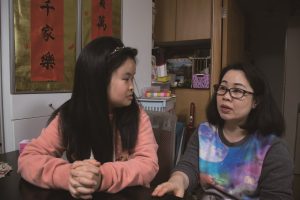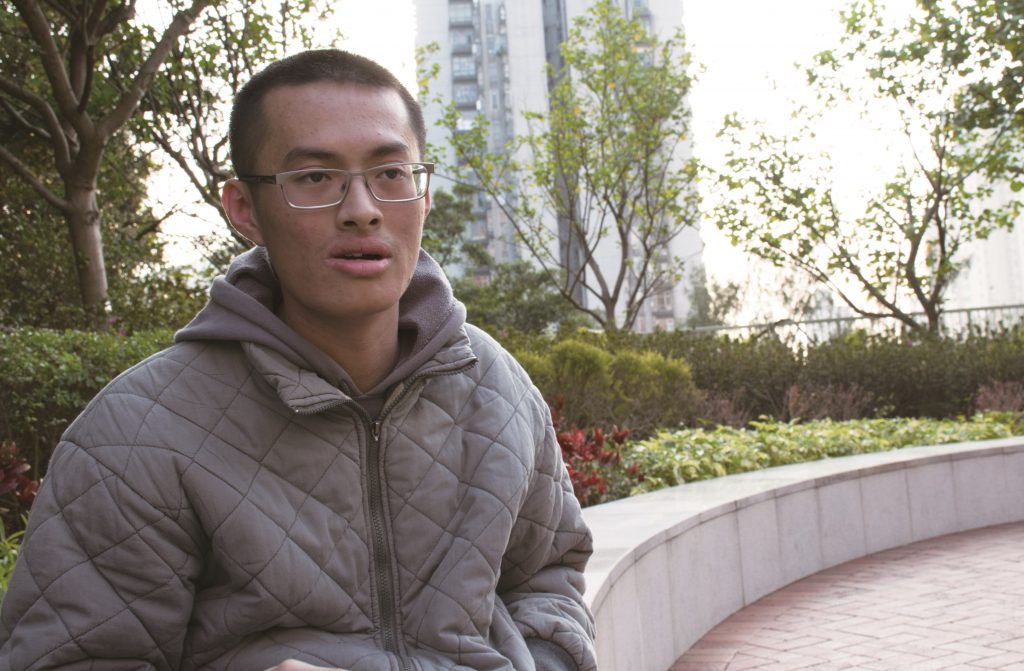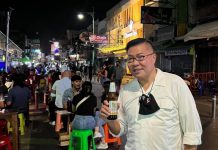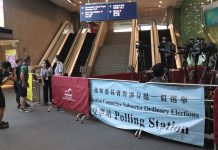Now 21, Queenie Lau was diagnosed with high-functioning autism at the age of six. She does not suffer from delayed language development or intellectual disability like some others on the autism spectrum, but speaks fluent English and Mandarin, and can speak conversational Filipino, French, Indonesian and Japanese.

However, problems in social communication and repetitive behaviours still bother her. Besides being unable to control the volume and tone of her speech, she is also insensitive to people’s reactions. For instance, she would insist that guests to her home play with her dogs, even though they disliked dogs. Fortunately, some overseas English tutors at the Youth College have taught her how to communicate through role-play activities and constant reminders.
Lau initially found it difficult to make friends in Youth College. She could not find common topics of interest with her classmates and found it hard to find group mates for projects. When the overseas tutors noticed her isolation, they took the initiative to introduce Lau to students with the same hobbies and invited her to join school activities. With their help, she has now made many new friends in the school.
Lau says a Canadian tutor who has personal experience of helping people with autism and ADHD back home has been particularly helpful. The tutor even wrote a guide on how to support autism students for other teachers’ reference, including advice such as giving clear and slow instructions, and explaining new concepts with graphics.
Apart from tailor-made learning aids, Lau also gets an extra 15 minutes to complete her examinations because she needs more time to comprehend the underlying meaning of the texts.
Unfortunately, not every teacher in the VTC is as understanding. “Foreign tutors are usually more earnest and eager to help than local teachers,” Lau’s mother says. “But the bad thing is they just stay here for one year.”
Apart from assistance from the overseas English tutors, Lau also benefits from the VTC’s Peer Counsellor Training Programme which seeks to create an inclusive learning environment.
Timothy Theodore Tam Ka-ki, 19, was also diagnosed with high-functioning autism as a young child and additionally has ADHD and dyslexia. Despite these challenges, he is now in his second year of a biomedical sciences degree at the University of Hong Kong (HKU).
He finds that of his learning difficulties, autism affects his life the most. He often gets moody and feels depressed because of minor things. When he was a child, a broken pencil could make him unhappy for an entire day. Noisy environments and sensory overload usually triggered his symptoms – he would scream, throw things or even push and hit people impulsively. The worst thing was, he could not explain his actions afterwards and sometimes ended up being punished or struck by others.

Tam sought help from the Centre of Development and Resources for Students (CEDARS) of HKU and staff have arranged irregular meetings with educational and clinical psychologists to better understand his condition and needs. When they learned that he was always getting lost in his first semester but was too timid to ask for directions, they walked him around the campus and pointed out the main buildings to him.
It took time for Tam to adapt to his new environment. “Unlike at secondary school, courses at university change every half year and you have to familiarise with new course mates all over again,” he says. The coaching, workshops and peer counselling service organised by CEDARS help him to adapt to his constantly changing social circles.
Although Tam is able to find group mates, the process is not easy or pleasant. He needs to pace himself for the various tasks to deal with his dyslexia. After years of training, he still cannot distinguish the letters “b” and “p”, always writes the strokes of Chinese characters incorrectly and repeats words in his writing, such as “He is is”. As he needs to start working earlier to complete the tasks, he ends up doing most of the work in his group. But Tam does not bother to complain because he knows he will never win in an argument.
Tam also finds it difficult to read text and perceives words to be floating. He has applied for enlargement of the text on his exam papers. Bigger font sizes and more spaces between the lines make it easier for him to read the text. He also receives supplemental examination time based on educational psychologists’ evaluations and his previous medical reports.






































